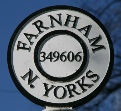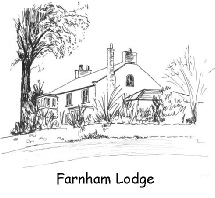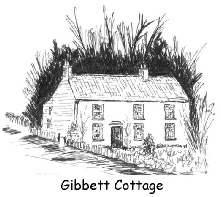A North Yorkshire
Village

St Oswald’s Farnham


Burial in Wool

Parliament, inspired by its supporters among the farmers and landowners, passed two
curious acts in 1667 and 1678 called
'The Burial in Wool Acts'
The 1678 Act said that:
'No corpse of any person shall be buried in any shirt, shift, sheet or shroud or anything whatsoever, made or mingled with flax, hemp, silk, hair, gold or silver, or in any stuff or thing other than what is made of sheeps wool only'.
The commercial intent is clear and the act was to be enforced with fines. No doubt many church records reflect the working of the act and certainly it is clear from the Farnham register. In 1678 the entry:
'Mary ye dau. of Francis Wood of Scotton Sep ye 10, without coffin and without any other material than sheeps wool only, attested by Thomas Davy before Will Ingilby, Knight and Bart'.
One can see progressive decline in the implementation of the Act in the record and it is no surprise to learn that it was repealed in 1814, by which time it had fallen into disuse
Ducking Stool
In 1676 Farnham was ordered to provide a Ducking Stool un der penalty of 20 shillings
for neglect to do so. As probably everybody knows, this was a seat to which a victim
was strapped so that they could be plunged into deep water. the records do not say
why this order was made or what it was used for -
der penalty of 20 shillings
for neglect to do so. As probably everybody knows, this was a seat to which a victim
was strapped so that they could be plunged into deep water. the records do not say
why this order was made or what it was used for -
There was another
use for the Stool -